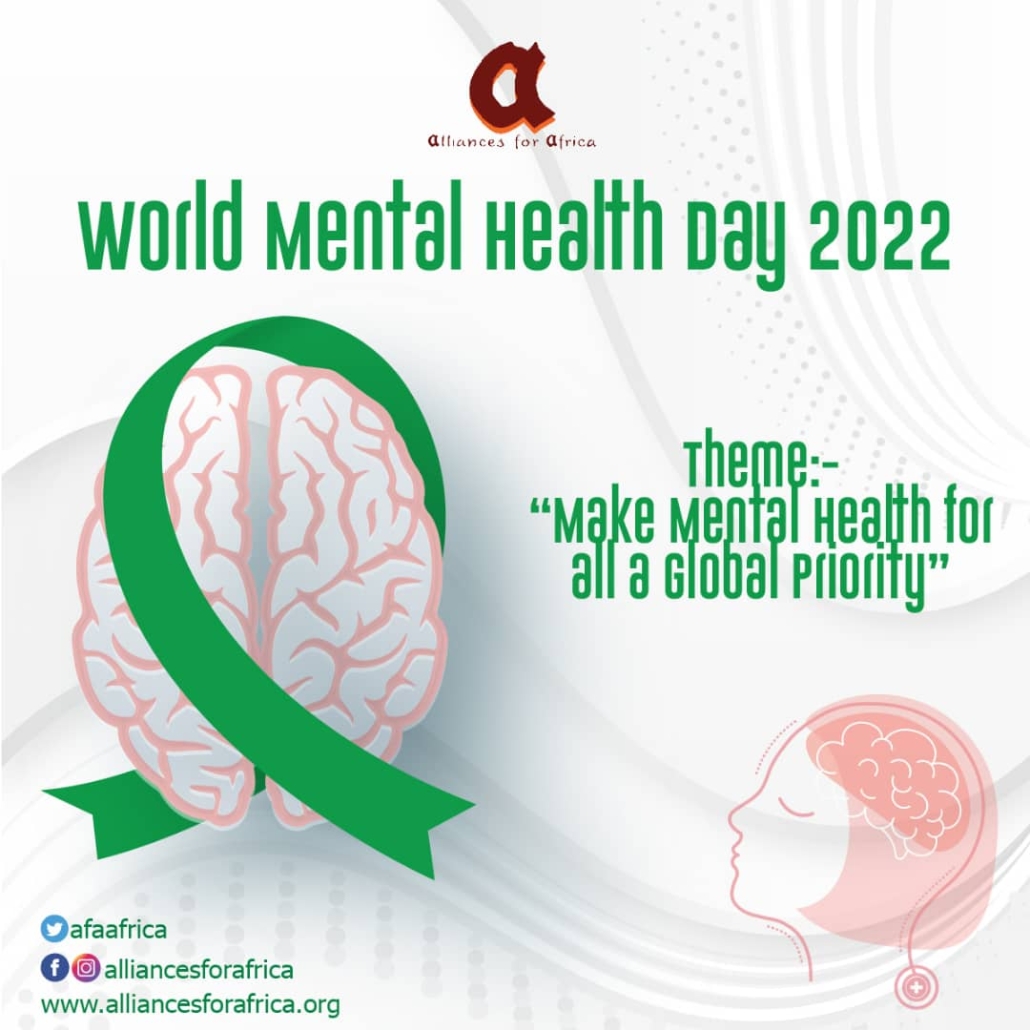If information obtained by the Premium times on the state of mental health in Nigeria is anything to go by, then the country is facing a global human rights emergency in mental health.
The online tabloid of September 11, 2022, quoted the President of the Association of Psychiatrists in Nigeria (APN), Taiwo Obindo, to have stated that, more than 60 million Nigerians suffer from mental illnesses.1
He further stressed that, mental healthcare in the country is in a sorry state as out of 60 million Nigerians suffering from various mental illnesses only about 10 percent of them were able to access appropriate care; leaving a majority in the treatment gap for mental illnesses.
October 10 worldwide, is a day set aside to mark World Health Day. It is imperative according to the World Health Organization, “to raise awareness of mental health issues around the world and to mobilize efforts in support of mental health.’’2
“Making Mental Health & Well-Being for All a Global Priority”, is the theme of this year’s 2022 World Mental Health Day. This theme encourages stakeholders to come together to recognize advancements in the field and to speak out about what needs to be done to guarantee mental health is a priority for everyone.
Mental illness according to Mayo Clinic definition, refers to a wide range of mental health condition that affect moods, thinking and behaviour. It presents itself as Anxiety Disorder, Depression, Bipolar disorder, Post Traumatic Stress Disorder (PSTD), Schizophrenia, Eating disorder, Disruptive behaviour and dissocial disorders, Neuro-developmental disorders.
Childhood abuse, trauma, or neglect, social isolation or loneliness, experiencing discrimination and stigma, including racism, social disadvantage, poverty or debt, bereavement, severe or long-term stress, having a long-term physical health condition, unemployment or losing your job, homelessness or poor housing, being a long term carer for someone, drug and alcohol abuse, domestic violence, bullying or other abuse, significant trauma such as military combat, being involved in a serious incident in which you feared for your life, or being the victim of a violent crime, physical causes – for example, a head injury or a neurological condition such as epilepsy can have an impact on your behaviour and mood. (It’s important to rule out potential physical causes before seeking further treatment for a mental health problem).3
Drug abuse, stress, depression, and other socio- economic conditions are among the leading causes of mental sickness in Nigeria.
A report carried out by Africa Polling Institute and Epic Africa, a health consultancy firm, identified drug abuse followed by sickness of the mind as the major causes of mental illness in Nigeria. It also exposed the poor perception of people towards mental health in Nigeria.
More Nigerians in rural areas viewed mental health disease as possession by evil spirits, and one with mental illness must exhibit disruptive behaviour to be regarded as mentally ill. This accounts for the reason why many would prefer to seek spiritual help especially to churches or traditional medicine healer.
These are made due to inadequate provision and policy guiding mental health in Nigeria. The legislation guiding mental health is archaic with very poor budgetary allocation and releases.
The Lancet Global Health report reveal that Nigeria’s mental health legislation is outdated and not reflective of present realities
“Today, this legislation is outdated and archaic, reflective of a period in human history not only when mental health was severely misunderstood but also when the treatment of people with mental health-care needs was both inhumane and ineffective. In 2003, a Mental Health Bill was put forward to the National Assembly of Nigeria. With little support and no progress for more than 6 years, it was withdrawn in April, 2009. This Bill was presented again in 2013, when the National Policy for Mental Health Services Delivery set out the principles for the delivery of care to people with mental, neurological, and substance abuse problems.
Again, facing scant support, it has yet to become law. In the absence of a dedicated authority to assess compliance or support legislation, the effect of this policy on the quality of care and life for people living with mental health problems in Nigeria remains negligible.’’4
Therefore, it is crucial to continually educate Nigerians at the institutional and grassroots levels on mental health disorders in order to change people’s perspectives.
Integrating mental health services into primary care can help address mental health services’ limitations these issues. The government should as a matter of urgency reform and allocate resources towards improving mental health services in Nigeria.

